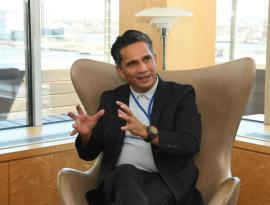Reports Detail Failures of Max Planck Society

A recent investigation by DW and Der Spiegel has uncovered a disturbing pattern of abuse and toxic work environments within Germany's Max Planck Society, one of the nation's most prestigious research organizations. The investigation, which involved interviews with over 30 scientists and a review of internal reports and communications, reveals a systemic failure to hold abusive staff members accountable, leaving junior researchers, particularly women and people of color, vulnerable to mistreatment.
The Max Planck Society, known for its emphasis on individual scientific excellence, operates on a model that grants significant autonomy to its institute directors. While this has fostered groundbreaking research, it has also created opportunities for abuse of power. One scientist, Gabriel Lando, a theoretical computational physicist, recounted his experience with Jan-Michael Rost, a director at the Max Planck Institute for the Physics of Complex Systems in Dresden. Lando described being subjected to verbal abuse, including being called "autistic" and "f***ing useless," and witnessing Rost's aggressive behavior, such as repeatedly banging on the table and shouting during meetings. Lando stated it took him over a year to recover.
The investigation found that Lando's experience is not isolated. Many junior scientists, lured to Germany with the promise of world-class research, reported experiencing or witnessing misconduct by senior staff. Bullying and sexism were identified as common issues, with non-German employees being particularly vulnerable. One female PhD student, Aubrey, reported being excluded from project discussions and fearing that her work would not be credited fairly. She noted that the practice of overstating one's own contributions while minimizing those of others was commonplace.
Despite the Max Planck Society's efforts to address these issues, including the implementation of a Code of Conduct, abuse persists. Many scientists are reluctant to report misconduct due to fear of retaliation or career repercussions. Those who did attempt to report often faced obstacles, including being discouraged from doing so or being warned of potential negative consequences. In one instance, a researcher who submitted a detailed report to the Staff Unit for Internal Investigations was told that the report would be forwarded to the managing director of the institute, raising concerns about conflicts of interest and the protection of sensitive information.
The Max Planck Society has been criticized for its lack of effective supervisory structures. A report by Germany's Federal Court of Audit in 2024 highlighted the absence of a proper supervisory body, raising concerns about accountability and oversight. Thomas Sattelberger, a former lawmaker, emphasized the need for public supervisory bodies to hold individuals accountable for misconduct.
The consequences of these issues are far-reaching, potentially damaging Germany's reputation as a leading scientific hub. Gabriel Lando, like others, ultimately left Germany due to his experiences at the Max Planck Institute. He now continues his research in South Korea.










